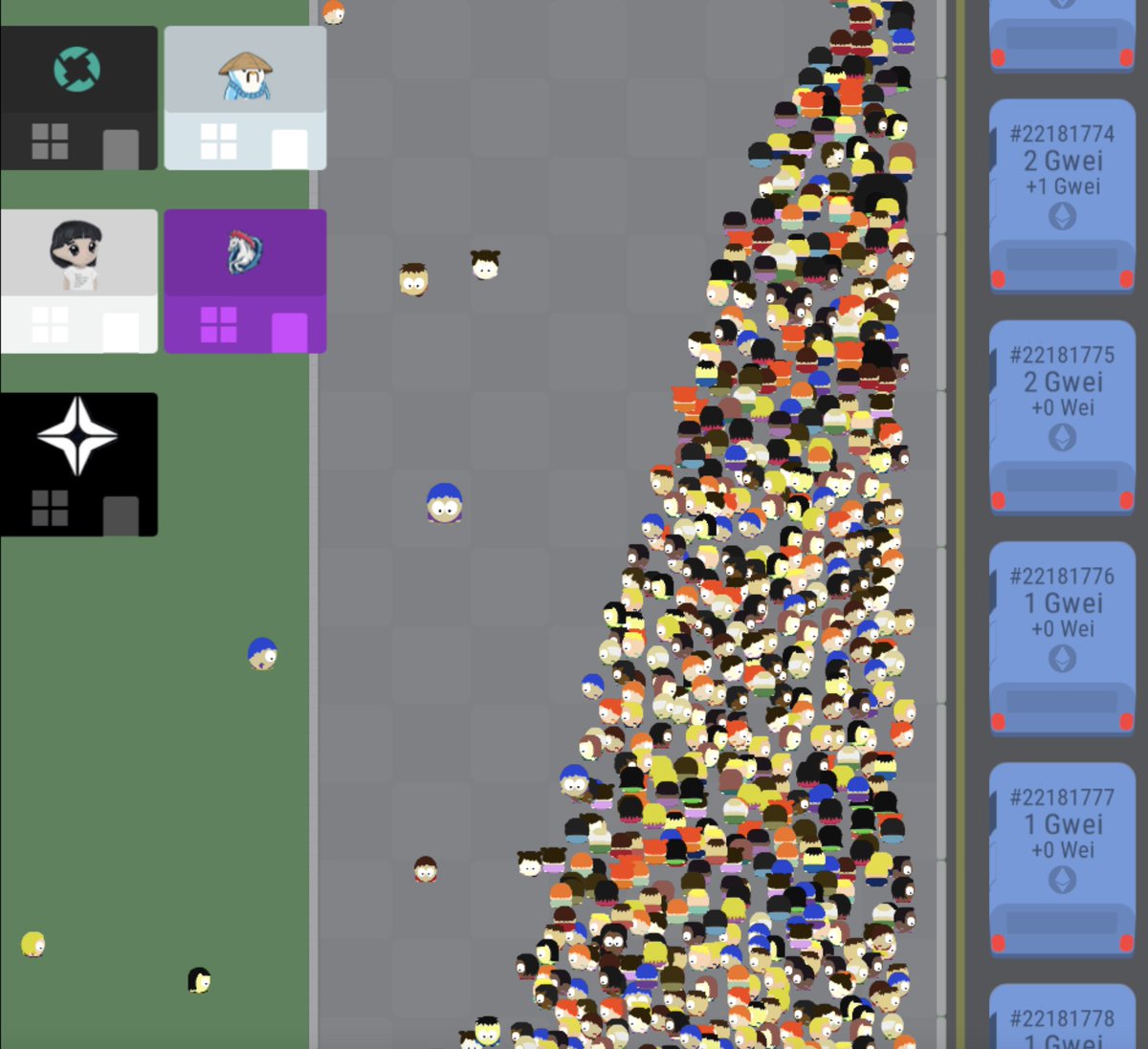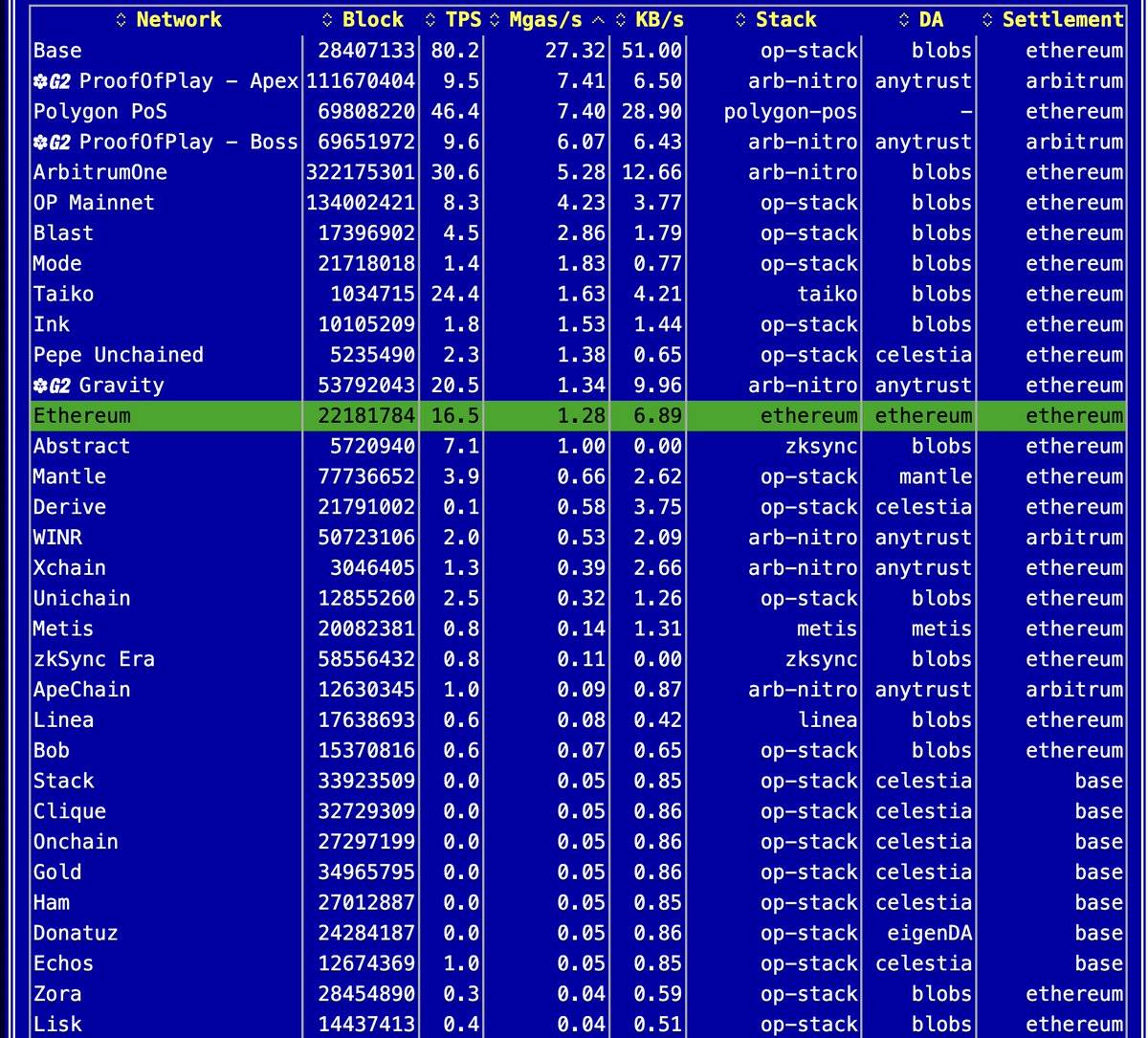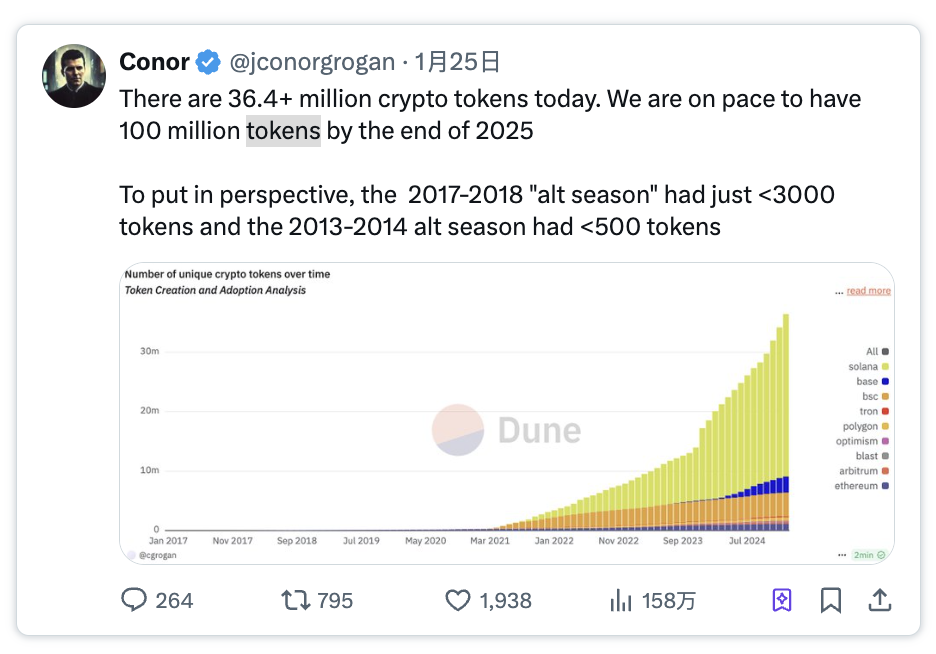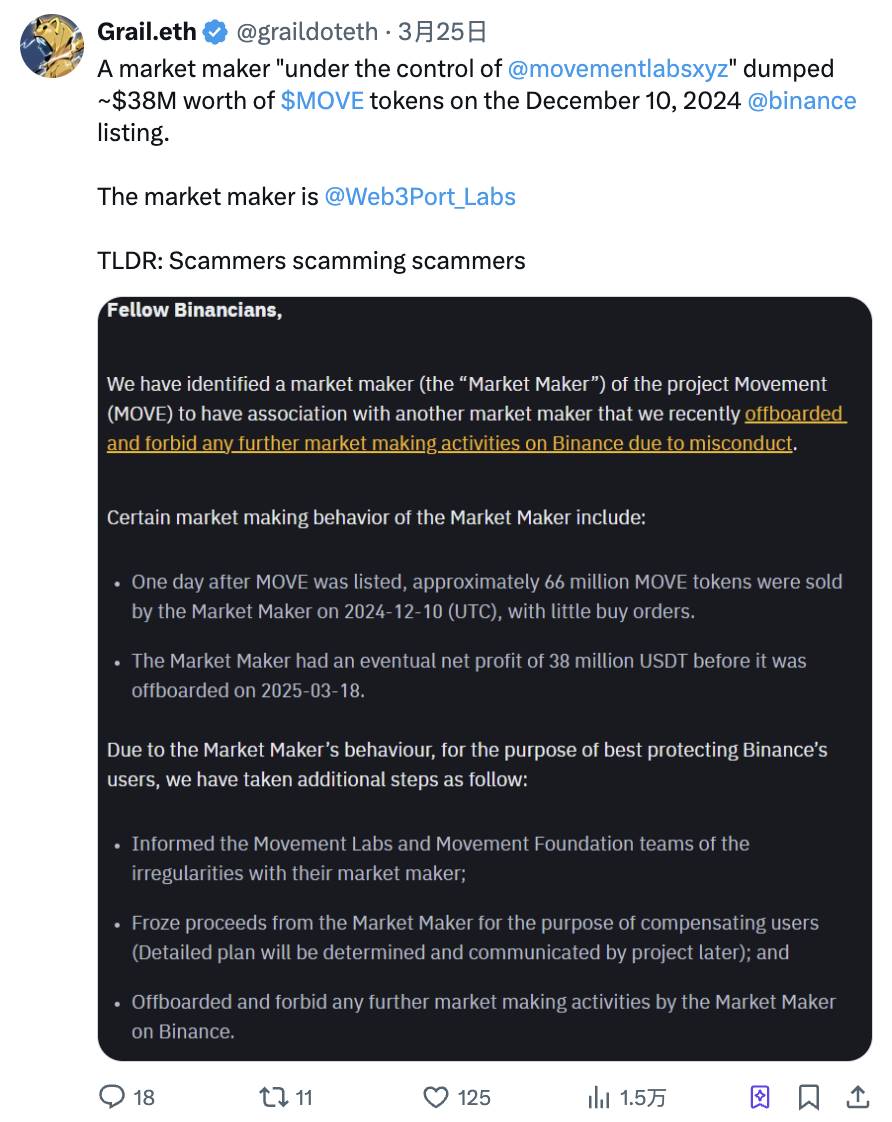The dream of true decentralization still exists, but for most people, it is just a dream.
Written by: hitesh.eth
Translated by: Block unicorn
We have a digital planet: Web2 and Web3.
The Web3 planet is quite new—it was initially built by pioneers who believed in decentralization, freedom, and autonomy. In its earliest days, it was a wild, uncharted land with no rulers, only builders.
But then, a bridge was established between Web2 and Web3. At first, only a few capitalists from Web2 arrived, attracted by the raw potential of this new world. They observed from the sidelines, analyzing its terrain, understanding its rules, and identifying the most valuable territories.

Bitcoin Block Space
The first wave of large-scale colonization began with Bitcoin—the most precious nation on the Web3 island. It is a scarce land with clear ownership, where power belongs to those who understand its fundamental principles.
But once the first settlers controlled and secured their wealth, they began to expand. They saw that Web3 was far more than just Bitcoin. There was vast, unclaimed land waiting to be shaped. Soon, they began to move beyond Bitcoin, establishing new territories—Ethereum, Solana, Polkadot, and countless others.
As more land was discovered, the race to carve up new nations intensified. Initially, block space was scarce. The earliest blockchains operated under strict limitations—each transaction required a position, and space was limited. This scarcity gave block space immense value. Owning even a small piece of block space meant having a seat in the new digital economy. But as competition intensified, innovation followed.

ETH Transaction Visualization
More efficient ways to create block space emerged. Layer 2 solutions, Rollups, sidechains—each brought a wealth of new land to the Web3 planet. What was once a rare commodity became abundant.
Builders no longer fought over limited space; instead, they created endless new land to meet the growing demand for settlement. But the flood of block space brought unexpected consequences.

What was once precious became cheap. The cost of storing transactions—once a key economic force—plummeted. The promise of cheap block space would attract millions of new settlers from Web2, but the reality was different.
People from Web2 hesitated.
They had heard stories of treasure seekers venturing into Web3, lured by the promise of wealth, only to be devoured by its predators. Some Web2 residents did make the move, drawn by tales of overnight riches.
They entered Web3 hoping to secure a place in the new economy. Many started by purchasing small plots of land—various tokens, each promising future value—at first. They traded, speculated, and built businesses, believing they were at the forefront of the next great revolution.
But they did not realize that Web3 had already been constructed by its earliest settlers and most powerful capitalists. The rules of the game were not explicitly written down, but those who controlled the land knew them well. As more Web2 people migrated, they unknowingly fell into a trap. The complexity of Web3 was daunting.

There were too many new nations, too many different rules, and too many scams disguised as opportunities. Big players controlled the flow of information, manipulated the market, inflated values, and pulled the rug out from under unsuspecting settlers.
The Web3 planet became a playground for those who knew how to extract wealth from the ignorant. Even now, with block space cheaper than ever, the pace of adoption remains slow. The dream of a mass migration from Web2 to Web3 is fading.
The establishment of new land promised a seamless user experience, but it never reached the familiarity and convenience offered by Web2. The additional promises of quick incentives were not enough to attract people—Web2 individuals had seen too many peers get hurt.
They watched entire nations within Web3 rise and fall overnight, witnessing fortunes gained and lost in the blink of an eye. Ordinary people hesitated, unable to see through the chaos. Yet, amidst the turmoil, a thriving trading market emerged.
Web3 real estate—tokens—became the lifeblood of its economy. Everything was for sale. Each nation had its own properties, unique assets, and promises of future value. The trading floor was open endlessly, operating around the clock, driven by speculation, manipulation, and greed.

Some nations thrived temporarily, only to decline as attention shifted. New land was minted daily, sold to the highest bidder, and then flipped for short-term profits. This cycle never stopped. And while settlers struggled, the true beneficiaries of Web3 thrived.
Bridge operators—exchanges—became the gatekeepers, controlling the flow of assets between Web2 and Web3.

They profited every time someone entered or exited. Market makers—those hidden forces managing liquidity—ensured that no transaction went unnoticed, taking their share from each trade. Developers continued to build, not necessarily for innovation, but to create more land to sell. And what about marketers? They wove stories, crafted narratives, and sold dreams to the next wave of hopeful settlers.
The dark side of Web3 is that it is no longer truly decentralized. The early ideals of a free and open digital frontier have been replaced by the cold reality of capital. The game has been rigged.
The forces that dominated Web2 have also infiltrated Web3. They not only settled but reshaped the planet to meet their needs. Thus, the Web3 planet continues to expand, becoming an endless frontier of digital land, speculation, and fleeting opportunities.
The dream of true decentralization still exists, but for most people, it is just a dream. Settlers continue to arrive, hoping to get rich, but in the end, most leave with less than they arrived with.
Meanwhile, those who have mastered the system continue to extract, build, and control, ensuring that this planet is still shaped by them.
免责声明:本文章仅代表作者个人观点,不代表本平台的立场和观点。本文章仅供信息分享,不构成对任何人的任何投资建议。用户与作者之间的任何争议,与本平台无关。如网页中刊载的文章或图片涉及侵权,请提供相关的权利证明和身份证明发送邮件到support@aicoin.com,本平台相关工作人员将会进行核查。



